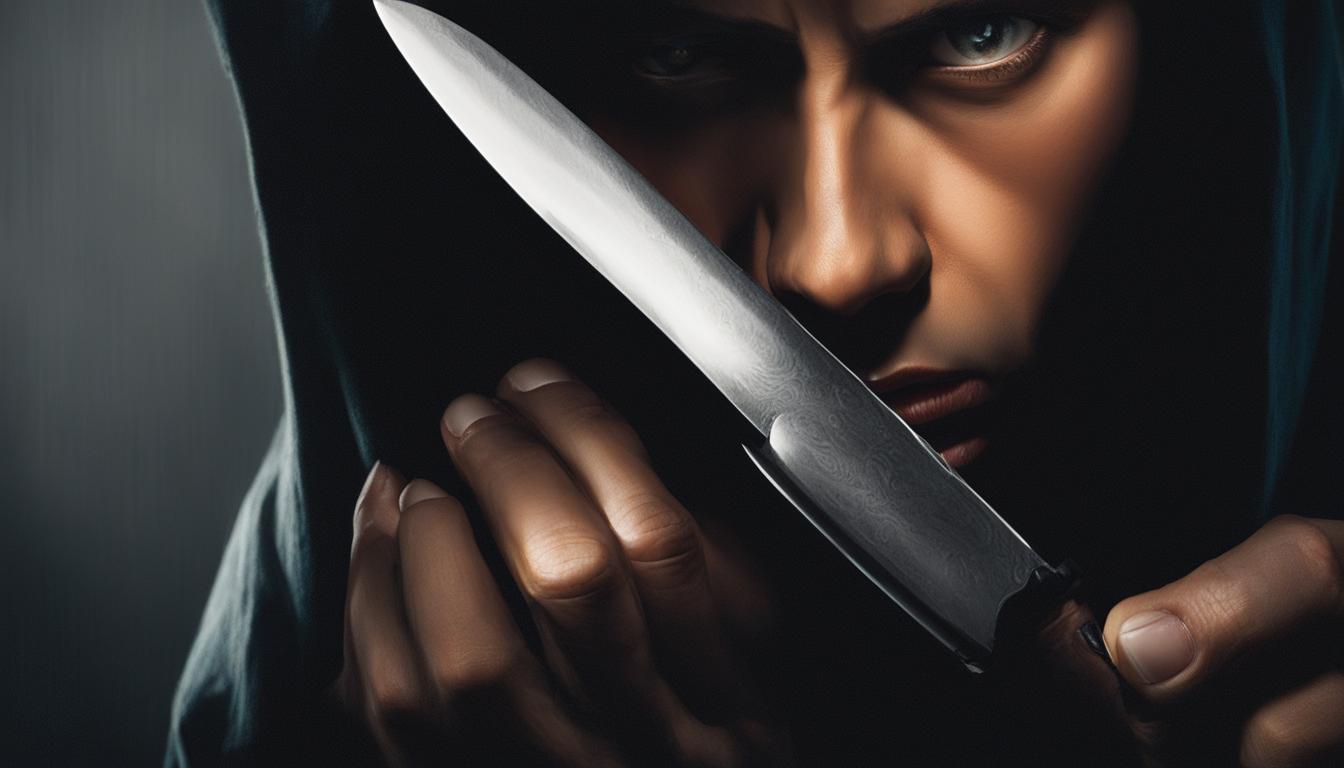Have you ever hesitated to give someone a knife as a gift because of the superstition that it brings bad luck? You’re not alone. For centuries, cultures around the world have held the belief that giving knives can lead to negative consequences. But is there any truth behind this superstition, or is it just a myth?
In this article, we will explore the origins and superstitions surrounding the act of giving knives as gifts. We’ll delve into different cultural perspectives, examine the symbolism of knives, and debate the role of luck and intention in this age-old belief. By the end, we hope to provide you with a better understanding of this cultural taboo and whether it should affect your gift-giving decisions.
Key Takeaways:
- The superstition that giving knives as gifts brings bad luck is prevalent in many cultures.
- The origins of this belief are rooted in cultural taboos and superstitions related to gift-giving.
- While modern perspectives have influenced the superstition, it still holds significance for some.
- The symbolism associated with knives varies across different cultures and contexts.
- Ultimately, the decision to give knives as gifts should be based on personal beliefs and cultural understanding.
The Origins of the Superstition
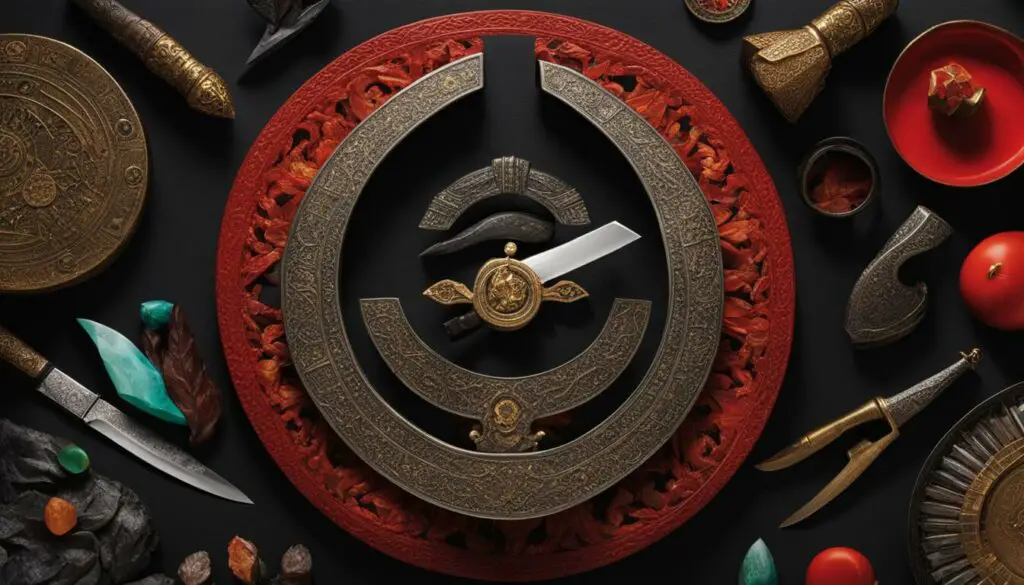
The belief that giving knives as gifts brings bad luck is deeply rooted in various cultural traditions and beliefs. Understanding the origins of this superstition is key to unraveling its meaning and significance.
In many cultures, knives are considered to be more than simple tools. They hold symbolic value and are often associated with power, protection, and survival. As such, the act of giving a knife as a gift is not taken lightly and is subject to certain cultural taboos and beliefs.
In some cultures, gifting knives is believed to symbolize severing ties or relationships. It is seen as a bad omen and a sign of impending conflict or betrayal. Similarly, in some Asian cultures, gifting knives is thought to bring bad luck and is associated with sharpness, which is viewed as a negative quality.
These cultural beliefs regarding giving knives have contributed to the notion of it being a gifting taboo. The act of giving someone a knife as a gift is often perceived as insensitive, thoughtless, or even dangerous.
While the exact origins of the superstition are difficult to trace, it is clear that the belief has a complex history tied to cultural norms and practices. As we continue to explore the superstitions surrounding knife gifts, it is important to keep in mind the cultural significance and symbolism associated with this traditional practice.
Superstitions Surrounding Knife Gifts

Superstitions surrounding knife gifts vary from culture to culture. Here are some of the most common:
| Superstition | Meaning |
|---|---|
| It is bad luck to give a knife as a gift | In some cultures, it is believed that giving a knife as a gift will sever the relationship between the giver and receiver. |
| Knives should never be given as wedding gifts | In some cultures, giving a knife as a wedding gift is considered unlucky as it is believed to bring bad luck to the marriage. |
| It is bad luck to give a knife without receiving money in return | In certain cultures, it is believed that giving a knife without receiving money in return will bring bad luck to the giver. |
These superstitions are deeply ingrained in certain cultures and may still be observed by some individuals today. However, it is important to approach these beliefs with an open mind and respect for different cultural traditions.
“In some cultures, giving a knife as a gift is a symbol of cutting ties or severing relationships, while in others, it is considered a symbol of protection and safety.”
It is also worth noting that not all cultures hold superstitions surrounding knife gifts. For example, in Japanese culture, giving knives as gifts is a common practice and is even considered a sign of respect for the receiver’s culinary skills.
Regardless of cultural traditions, it is essential to consider the receiver’s preferences and beliefs when giving a gift. With the right intention and respect for cultural traditions, giving a knife as a gift may not be considered unlucky or taboo.
Debunking the Myth
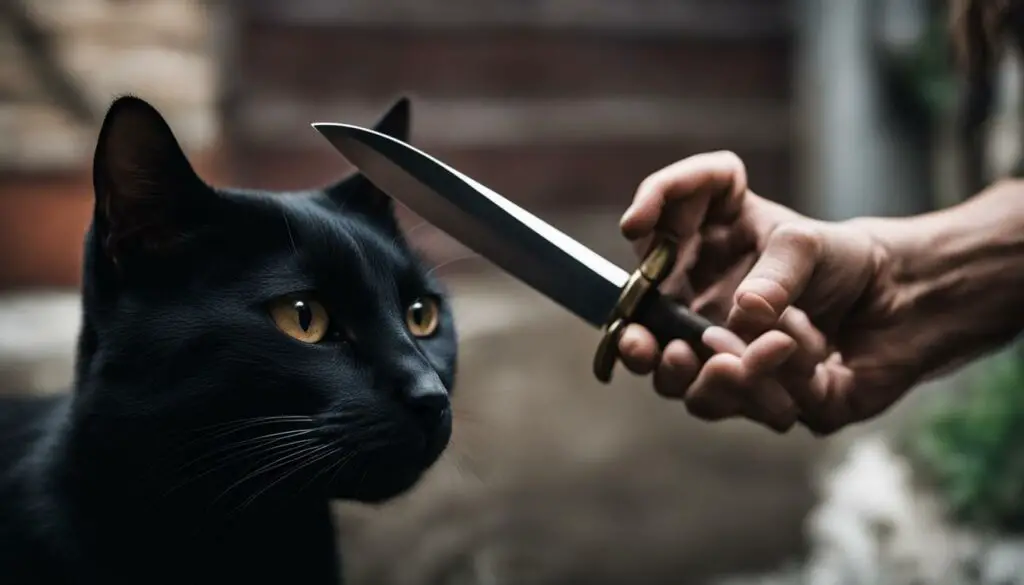
Despite the prevalent belief that giving knives as gifts brings bad luck, this superstition is not based on any solid evidence. In fact, this misconception has been widely debunked by scholars and historians.
One of the most common theories about the bad luck associated with giving knives stems from the belief that the sharp blade can sever a relationship or cut off friendship. However, this theory fails to consider the numerous practical uses of knives in daily life, such as cooking, hunting, and fishing. In fact, many cultures consider knives to be useful and practical gifts, and giving a knife as a present is a common tradition.
Another theory suggests that the superstition may have arisen from ancient beliefs about the nature of spirits and the afterlife. Some cultures believed that by giving a knife as a gift, the giver was essentially giving a weapon to the recipient, which could be used to harm them in the afterlife. However, there is no historical evidence to support this theory.
Overall, the superstition about giving knives as gifts is largely rooted in cultural beliefs and traditions, rather than any factual evidence. While it is always important to respect cultural beliefs and norms, there is no need to fear giving a knife as a gift, as long as the intention behind the gift is positive and well-meaning.
“The superstition about giving knives as gifts is largely rooted in cultural beliefs and traditions, rather than any factual evidence.”
Different Cultural Perspectives
Across different cultures, the tradition of giving knives as gifts is perceived differently. Gifts are an essential part of social interactions, and cultural beliefs impact the meaning and significance assigned to them.
In Japan, knives are considered as a symbol of respect and are often given as gifts to celebrate milestones. They are also believed to ward off evil spirits and negative energies. In some African cultures, knives are exchanged between families as a symbol of peace and a sign of a new beginning.
However, in some Western cultures, knives as gifts are often associated with violence and considered inappropriate, especially as gifts for children. The history of knives as weapons, along with the portrayal of knives in movies and TV shows, has contributed to the negative connotations attached to this practice.
The Indigenous People of Alaska
The indigenous people of Alaska’s tradition of giving knives as gifts is a unique example of cultural beliefs regarding knife gifts.
- Inupiaq Eskimo people believe that giving knives as gifts strengthens the bond between the giver and the receiver and signifies trust and respect. They also believe that the gift of a knife will ensure that the recipient will always be able to provide for themselves.
- Yupik people follow a similar tradition and believe that the gift of a knife ensures the giver’s safety and protection.
These cultural perspectives showcase how the symbolism and meaning assigned to gifts can vary significantly across different cultures.
“Gifts are an essential part of social interactions, and cultural beliefs impact the meaning and significance assigned to them.”
The Symbolism of Knives
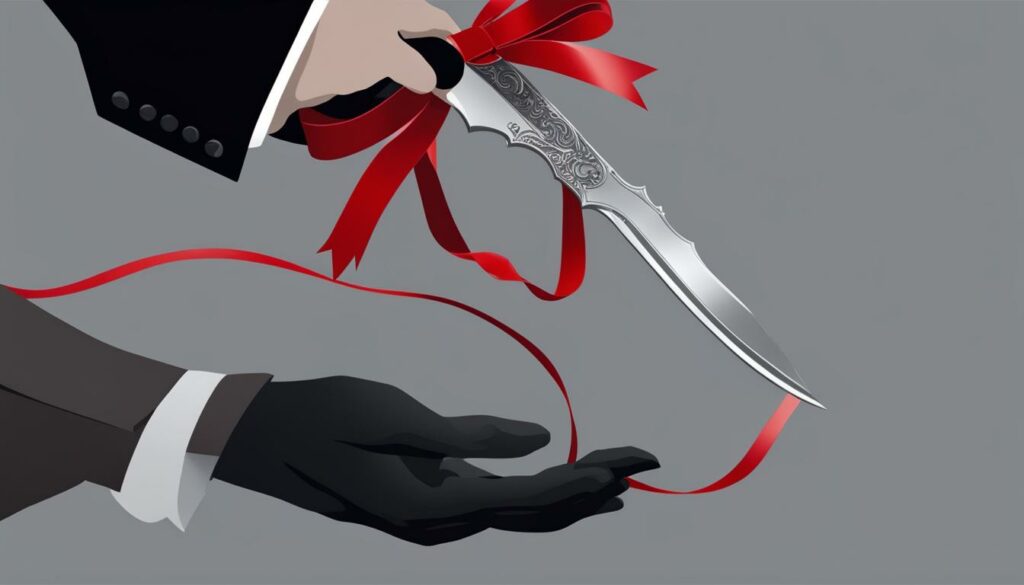
The act of giving knives as gifts is often influenced by the symbolic meanings associated with the tool. In many cultures, knives represent strength, power, and protection. For example, in Japan, a knife called a “tanto” is given as a token of respect and loyalty.
In other cultures, knives are seen as a representation of division and cutting ties. Giving a knife as a gift may be interpreted as a desire to sever a relationship or express hostility.
It’s essential to understand the symbolism associated with knives to avoid any misunderstandings and respect cultural beliefs. When choosing to give knives as gifts, it’s crucial to consider the recipient’s cultural background and the intended message behind the gift.
Cultural Taboos and Superstitions
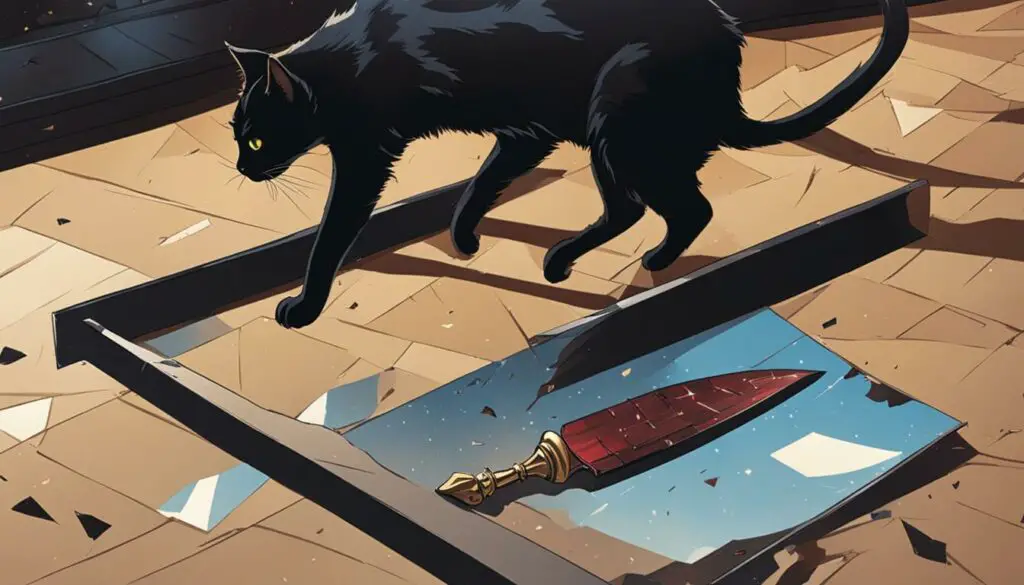
Gift-giving is an essential aspect of many cultures and is often associated with important events such as weddings, housewarmings, and graduations. However, specific taboos and superstitions related to gifting have emerged across different cultures over time. One of the commonly held beliefs is that it is bad luck to give knives as gifts.
The taboo surrounding gifting knives is prevalent in many cultures, where it is believed that such gifts bring negative energy and represent a severance of the relationship between the giver and the receiver. In Chinese culture, giving knives as a gift symbolizes the severing of the relationship between the giver and the receiver. Similarly, in Western culture, sharp objects like knives are thought to cut ties with the recipient.
Superstitions about giving knives are also evident in other cultures. In African culture, the gift of a knife is perceived as a bad omen and foretells imminent danger. In Japan, it is customary to give money instead of a knife as a gift, and the recipient uses it to purchase their own knife. This practice is said to prevent any negative energy from transferring between the giver and recipient.
The origins of these taboos and superstitions are rooted in cultural beliefs and practices centered around gift-giving. In certain cultures, gifts must be given and received under specific conditions and adhere to certain traditions; otherwise, it may cause negative energy to flow between the giver and the recipient.
While some modern practices may have relaxed these taboos and superstitions, they remain an essential aspect of many cultures. Understanding these cultural practices is crucial in ensuring that one avoids causing offense or misunderstanding when gifting.
Modern Perspectives and Practices
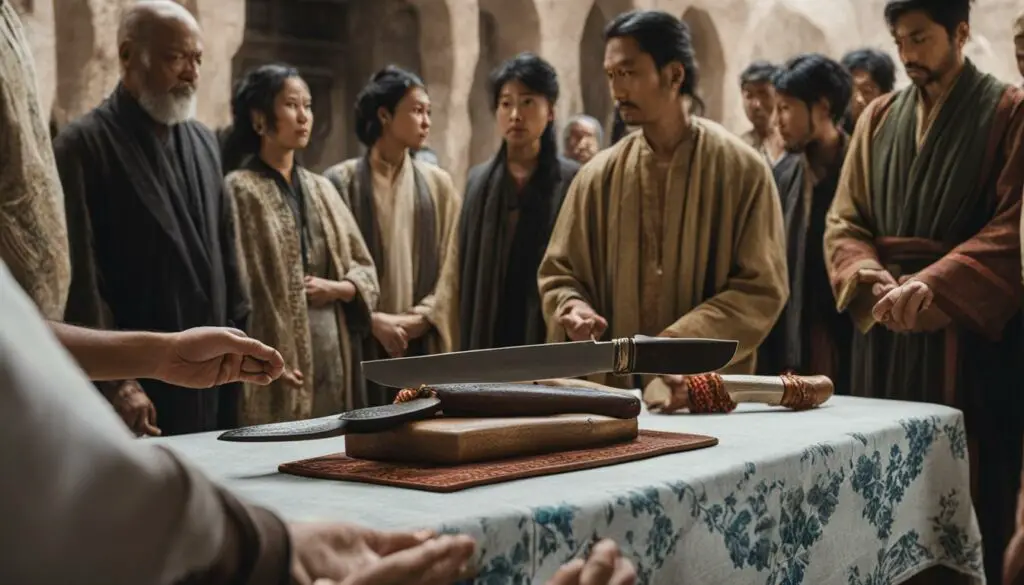
As cultural beliefs and practices evolve over time, the superstitions surrounding giving knives as gifts have also changed. While some still believe that giving knives brings bad luck, others no longer hold this belief. In fact, in some cultures, gifting knives is considered a sign of respect and trust.
One way in which modern perspectives have influenced the superstitions about giving knives is through the rise of online shopping. With the convenience of online shopping, it is now possible to purchase knives as gifts without physically handling them. This has led to a shift in cultural attitudes towards gifting knives, as the act of physically giving the gift is no longer seen as significant.
Another factor that has contributed to changing cultural attitudes is the increasing prevalence of multiculturalism. As people from different cultures come together, traditions and beliefs are shared and sometimes merged. This has resulted in a blending of cultural beliefs regarding giving knives as gifts, with some traditions being adapted or replaced with new practices.
Ultimately, the decision to give knives as gifts should be based on personal beliefs and cultural understanding. While some may still hold onto the superstitions surrounding knife gifts, others may embrace the symbolism and significance of the act. As with any cultural practice, it is important to approach it with respect and understanding.
Dispelling Misconceptions

There are many misconceptions surrounding the superstition that giving knives as gifts brings bad luck. It’s time to set the record straight and clarify some common misunderstandings.
- Myth: Giving a knife as a gift will sever the friendship or relationship.
- Fact: This myth is based on the belief that knives symbolize cutting ties or severing relationships. However, in many cultures, knives are also seen as tools that bring protection and good luck. Giving a knife as a gift can represent trust and cooperation.
- Myth: It’s always bad luck to give knives as gifts.
- Fact: While some cultures may view giving knives as gifts as bad luck, others do not share this belief. Ultimately, whether giving a knife as a gift is considered lucky or unlucky depends on the cultural context and personal beliefs.
- Myth: The superstition of giving knives as gifts is rooted in ancient history.
- Fact: While the superstition has some cultural history, it is not an ancient belief. The origins of the superstition are not entirely clear, but it is likely that it emerged in the past few centuries.
It is important to dispel these misconceptions surrounding giving knives as gifts. By understanding the truth behind the superstition, we can make informed decisions and appreciate the cultural significance of knife gifting traditions.
Debating Luck versus Intention
When it comes to giving knives as gifts, the debate between luck and intention is a complex one. On one hand, many cultural beliefs hold that the act of giving a knife as a gift brings bad luck. On the other hand, the intention behind the gift is an essential factor to consider.
Those who believe that giving knives as gifts is bad luck argue that the sharp edge of the blade symbolizes the severing of a relationship. This belief is prevalent in many cultures and is deeply rooted in tradition.
However, those who focus on intention argue that the act of giving a knife can also be a symbol of protection, strength, and loyalty. In some cultures, giving someone a knife is a gesture of trust and honor.
The reality is that the superstition surrounding knife gifts is deeply intertwined with cultural beliefs and understanding. While some may see it as bad luck, others may view it as a meaningful and even positive gesture.
Ultimately, the decision to give knives as gifts should be based on personal beliefs and cultural understanding. As with any gift, the intention behind it is the most important factor to consider.
“The reality is that the superstition surrounding knife gifts is deeply intertwined with cultural beliefs and understanding.”
By considering the cultural context and examining the symbolism associated with knives as gifts, we can gain a better understanding of the beliefs and superstitions surrounding them. Whether one believes in the bad luck or sees it as a gesture of protection, it is important to respect cultural traditions and beliefs.
Conclusion
Superstitions surrounding knife gifts have been prevalent in many cultures for centuries. We have explored the origins of these beliefs, the symbolism of knives, and how they have contributed to the notion of it being bad luck to give knives as gifts. Despite these superstitions, it is important to question their validity and make decisions based on personal beliefs and cultural understanding.
While the idea of bad luck associated with giving knives as gifts may still persist in some cultures, it is important to note that intention and meaning behind the gift may hold more significance than the superstition itself. By understanding the cultural beliefs and taboos surrounding gifting, we can gain a broader perspective on the subject.
Dispelling Misconceptions
It is essential to dispel any misconceptions surrounding the superstitions surrounding knife gifts. While some may believe it is bad luck to give knives as gifts, this notion is not always rooted in fact. Through research and analysis, it is possible to gain a better understanding of the origins and cultural significance of these superstitions.
Debating Luck versus Intention
Some may argue that luck plays a significant role when giving knives as gifts, while others believe that intention and meaning behind the gift hold more weight. Ultimately, the decision to give knives as gifts should be based on personal beliefs and cultural understanding.
While superstitions surrounding knife gifts are prevalent in many cultures, it is important to question their validity and gain a broader perspective on the subject. By doing so, we can make informed decisions and understand the cultural significance of gifting and its associated superstitions.
FAQ
Is it bad luck to give knives as a gift?
No, it is not necessarily bad luck to give knives as a gift. The belief that it brings bad luck is a superstition and varies in different cultures.
What are the origins of the superstition surrounding giving knives as gifts?
The origins of this superstition are rooted in various cultural beliefs and taboos related to gifting knives. Different cultures have different reasons for considering it bad luck.
What are some of the superstitions surrounding knife gifts?
Superstitions surrounding knife gifts include beliefs that it may sever relationships, bring bad luck, or cause harm to the recipient. These superstitions vary across cultures and traditions.
Is there any truth to the belief that giving knives brings bad luck?
No, there is no scientific or factual evidence to support the belief that giving knives brings bad luck. It is simply a superstition based on cultural beliefs and traditions.
How do different cultures perceive the act of giving knives as gifts?
Different cultures have varied perspectives on giving knives as gifts. While some may consider it bad luck, others may view it as a symbol of protection or good fortune.
What is the symbolism associated with knives as gifts?
Knives hold symbolic meanings in different cultures, ranging from protection and strength to cutting ties and severing relationships. The symbolism can vary based on the cultural context.
Are there any other cultural taboos or superstitions related to gift-giving?
Yes, many cultures have specific taboos and superstitions surrounding gift-giving. These beliefs often revolve around avoiding certain types of gifts or specific gestures that may be considered offensive or unlucky.
How have modern perspectives influenced the superstitions surrounding giving knives as gifts?
Modern perspectives and practices have altered cultural beliefs and superstitions. While some traditions persist, others have evolved to incorporate a more open-minded approach to gift-giving, including knives.
Is there any factual basis to the superstitions surrounding giving knives?
The superstitions surrounding giving knives are based on cultural beliefs and traditions. While they may hold significance for some individuals, they have no factual basis or scientific proof.
Should I be concerned about giving knives as gifts?
The decision to give knives as gifts should be based on your personal beliefs and cultural understanding. If you are aware of any superstitions or taboos specific to the recipient’s culture, it may be worth considering those before making a decision.
What factors should be considered when giving knives as gifts?
When giving knives as gifts, it is important to consider the recipient’s cultural background, personal beliefs, and any known superstitions or taboos related to the act of gifting knives. Respect for cultural diversity and individual preferences should guide your decision.
